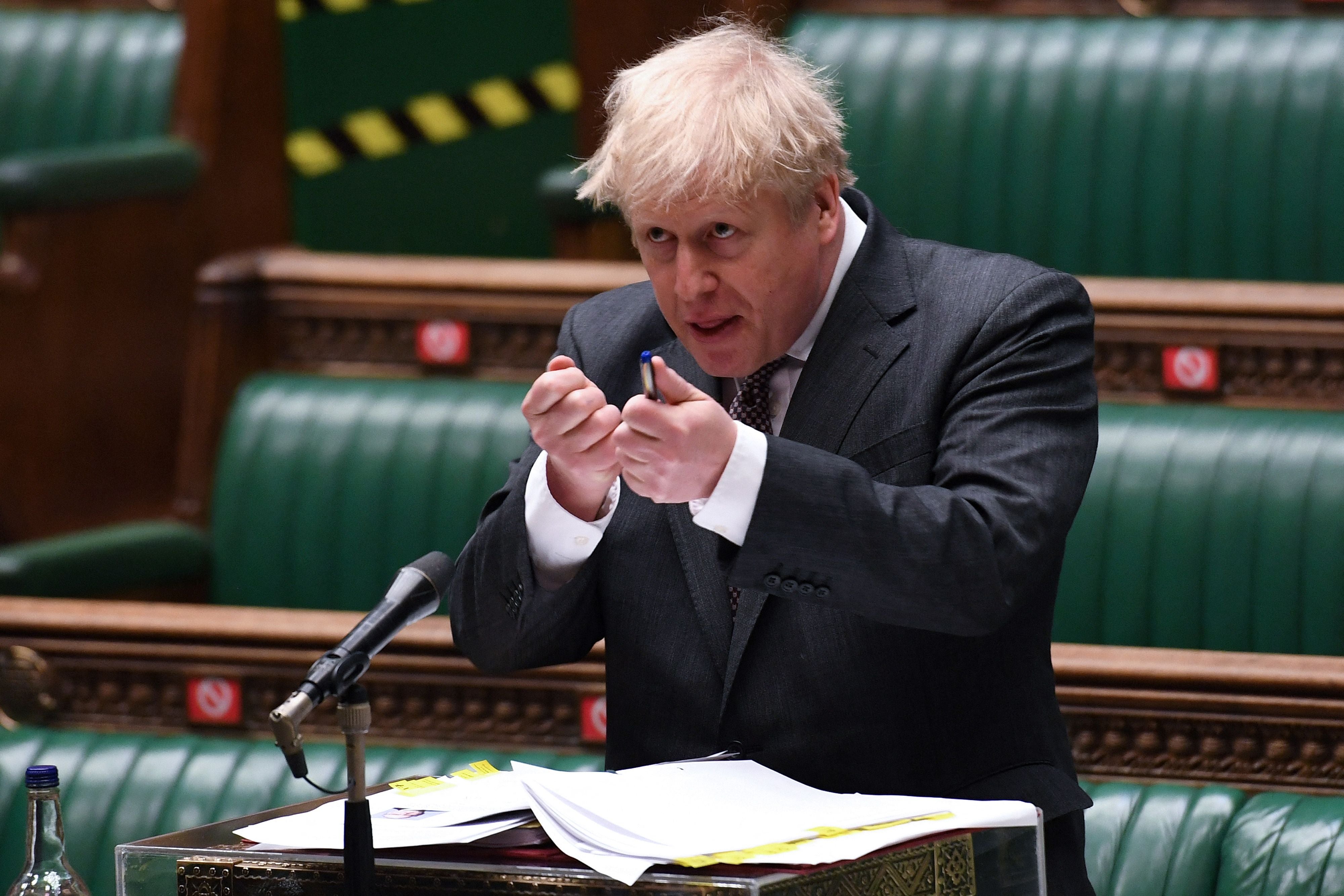Labour demands probe into Boris Johnson’s ‘conduct’ after Dyson text messages
‘We need the prime minister to appear before the Liaison Committee immediately’

Your support helps us to tell the story
From reproductive rights to climate change to Big Tech, The Independent is on the ground when the story is developing. Whether it's investigating the financials of Elon Musk's pro-Trump PAC or producing our latest documentary, 'The A Word', which shines a light on the American women fighting for reproductive rights, we know how important it is to parse out the facts from the messaging.
At such a critical moment in US history, we need reporters on the ground. Your donation allows us to keep sending journalists to speak to both sides of the story.
The Independent is trusted by Americans across the entire political spectrum. And unlike many other quality news outlets, we choose not to lock Americans out of our reporting and analysis with paywalls. We believe quality journalism should be available to everyone, paid for by those who can afford it.
Your support makes all the difference.Labour has demanded a parliamentary investigation Boris Johnson’s “conduct” after he personally messaged the billionaire inventor Sir James Dyson, telling him he would “fix” a tax issue for his employees during the height of the pandemic.
Rachel Reeves, the shadow Cabinet Office minister, called on the influential Commons Liaison Committee to summon Mr Johnson to give evidence to MPs on the issue and publish his correspondence with the entrepreneur.
In text messages, published by the BBC, Mr Johnson assured the British inventor the chancellor, Rishi Sunak, would address the company’s issue over employees’ tax status. The prime minister defended his actions yesterday as the “right thing to do” with the country facing the novel coronavirus.
“I make absolutely no apology at all for shifting heaven and earth and doing everything I possibly could, as I think any prime minister would in those circumstances, to secure ventilators for the people of this country,” he told MPs.
During prime minister’s questions, Mr Johnson also promised to provide details of the exchanges to MPs, but his official spokesperson later said there were no plans for a leak inquiry to establish how messages from his personal mobile got into the public domain.
According to The Times, the prime minister also received advice from the cabinet secretary, Simon Case, to change his mobile phone number amid concerns over the ease with which lobbyists and other business figures are able to contact him directly.
The newspaper reported Mr Johnson, who has had the same phone number for over a decade, rejected the advice from Mr Case — the most senior civil servant. No 10 declined to comment on the reports of private conservations while sources denied the account when approached by The Independent.
Demanding the “thorough investigation” into the prime minister’s contacts with Sir James, Ms Reeves wrote in a letter to the chair of the Liaison Committee: “I am sure that you will be as alarmed as I was, to see text messages between the prime minister and James Dyson revealed today.
“These revelations seem to confirm a growing feeling that if one has access to a telephone number of someone like the prime minister or the chancellor of the exchequer, then they are able to gain special treatment, potentially even significant financial ones”.
Ms Reeves said the prime minister should give evidence to the committee, publish all correspondence about government business on his mobile phone, and urged No 10 to release details of any other communications between ministers, officials, and external commercial lobbyists.
She added: “We need the prime minister to appear before the Liaison Committee immediately, and for a thorough investigation into his conduct on this matter. Boris Johnson should also stick to the commitment he made this week in prime minister’s questions and publish his text messages with other businesses.”
Kwasi Kwarteng, the business secretary, however, insisted it was “very good” that business leaders and constituents had “direct access” to ministers and those making decisions in Whitehall, adding: “I think that in the real world, in reality, people are contacting ministers, contacting MPs, all the time.
“Business people are contacting MPs all the time, constituents also contact me on my phone. I think that in a modern democracy it’s very good that people actually can have direct access to ministers and people who are taking responsibility.”
In a statement on Wednesday, Sir James said he “hugely proud” of his company’s response in “the midst of a national emergency”, and that he would “do the same again if asked”.
“When the prime minister rang me to ask Dyson to urgently build ventilators, of course I said yes.Our ventilator cost Dyson £20 million, freely given to the national cause, and it is absurd to suggest that the urgent correspondence was anything other than seeking compliance with rules, as 450 Dyson people - in UK and Singapore - worked around the clock, seven days a week to build potentially life-saving equipment at a time of dire need.
“Mercifully, they were not required as medical understanding of the virus evolved. Neither Weybourne (Dyson’s holding company) nor Dyson received any benefit from the project; indeed commercial projects were delayed, and Dyson voluntarily covered the £20 million of development costs. Not one penny was claimed from any government, in any jurisdiction, in relation to Covid-19”.
Join our commenting forum
Join thought-provoking conversations, follow other Independent readers and see their replies
Comments